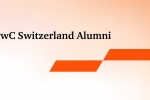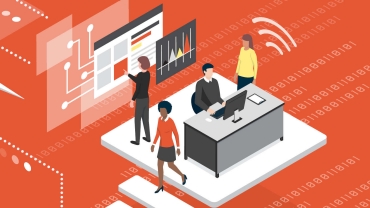Blockchain to the rescue
This challenge has been a big preoccupation for Ingrid and Martin. They realise that the farm can only operate profitably – for them and their children, if they ultimately decide to take over the farm – if they retain their credibility as a premium producer. Over the last year or so they’ve been inspired by news that big food industry players, including French supermarkets, are successfully adopting blockchain technology allowing produce, including carrots, to be tracked from the farm to the supermarket shelves (see French retailer Auchan implements blockchain food traceability, Ledger Insights, 2019 or Carrefour says blockchain tracking boosting sales of some products, Reuters, 2019).
The tracking basically works like this: Each participant in the supply chain, including the seed producer, records details of their contribution to the process. This information is written to a private blockchain. At present there are several of these dedicated food blockchains available, for example the FoodChain platform from TE-FOOD.
These systems typically include an inventory management tool that enables local authorities to check the certificates issued by farms, a B2B app allowing farms and logistics companies to provide traceability data, and mobile apps that consumers can use to retrieve information. These mobile apps are already a hit with younger consumers keen to check out the environmental friendliness of the food they buy, and with shoppers in countries like China where QR codes are in incredibly widespread use.
The information is very granular. For example, once the Wältis adopt the system, each crate they produce will have a unique tag with specific information on those very carrots. It will be possible for consumers to tell, for example, whether the produce in a specific crate or package was grown on land with full Bio Suisse certification or with IP-Suisse accreditation – and what requirements it fulfils. The establishment in New York, for instance, will know precisely when the crop was harvested and how it was transported, and thus how long it’s likely to remain fresh. In the (unlikely) event of a food scare, it will be possible to trace instantly where the problem delivery came from, and recall or remove the tainted carrots from the shelves with pinpoint accuracy.
Getting the picture? In our specific example, a major technology megatrend – blockchain − is enabling a process of convergence that’s creating completely new ecosystems: distributed ledger technology (i.e. blockchain) is bringing together farmers, certification authorities, logistics providers, retailers, food manufacturers and consumers on a single platform. Each actor benefits from this unprecedented transparency. Farmers have detailed information on their product, its transport and the people consuming it; certifiers have additional input to assess whether their standards are being complied with; and consumers are able to make better informed decisions. It’s good news in terms of all three dimensions of sustainability: environmental (promotes credible organic farming and sustainable transport), social (reduces food waste) and economic (enables farmers, logistics providers and retailers to operate more efficiently and profitably).












